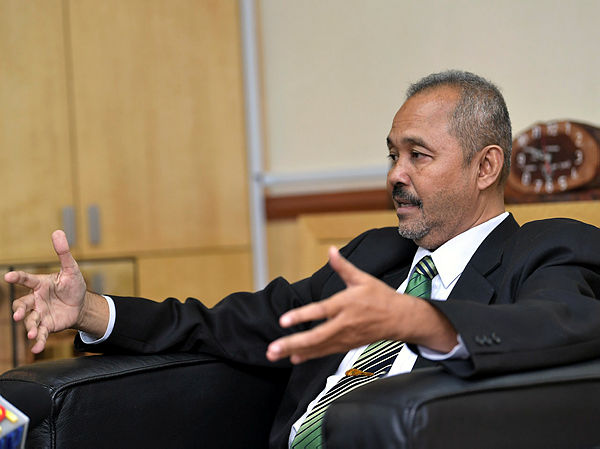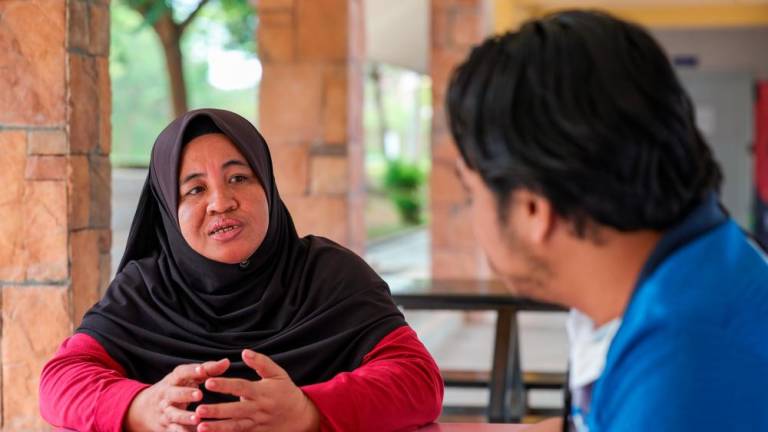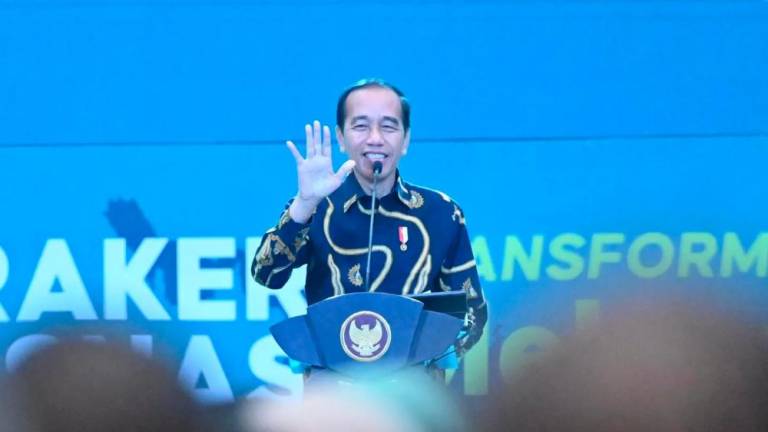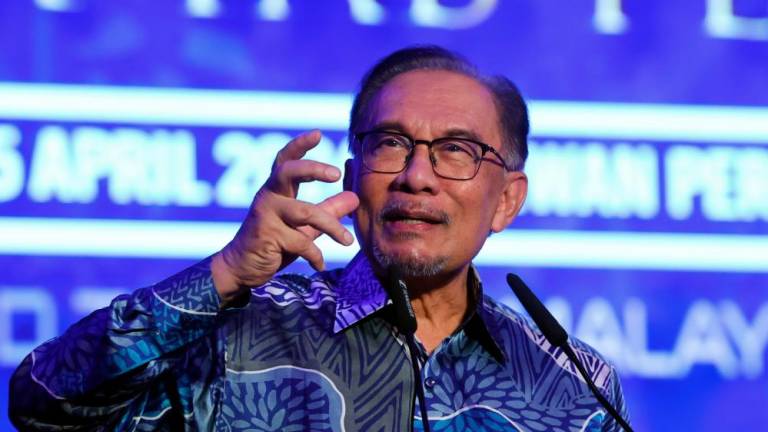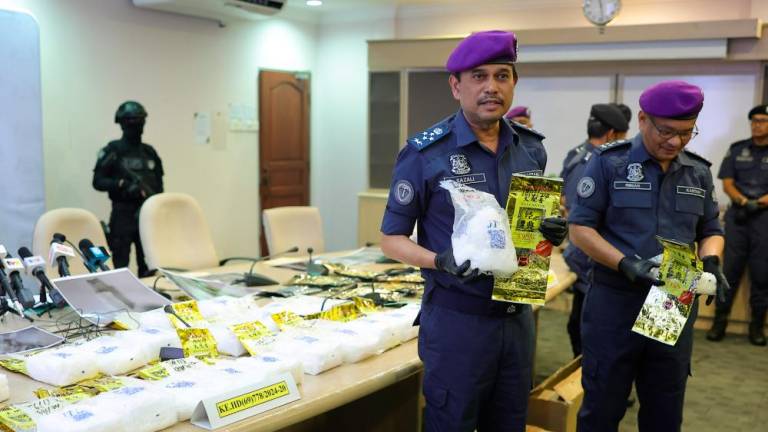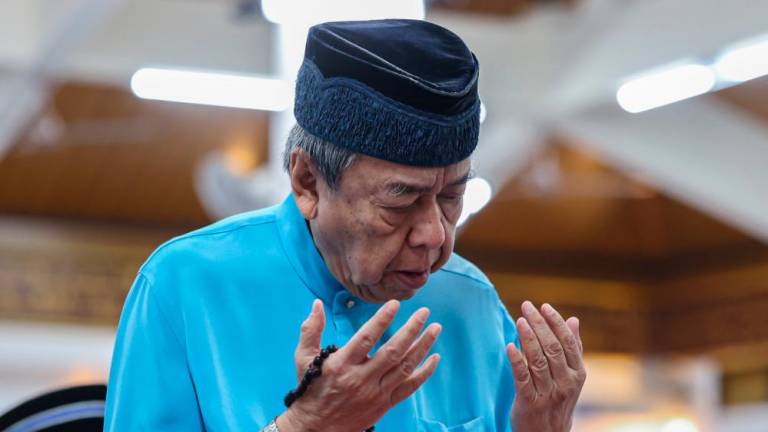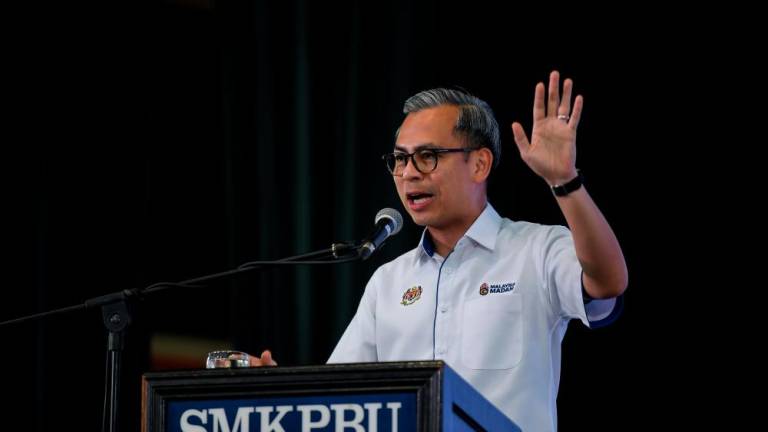KUALA LUMPUR: The recent health crisis involving the Orang Asli has been an eye–opening episode for many as problems plaguing the community come to the surface, posing a question mark over what more needs to be done to improve their well–being.
Besides the obvious need to address health issues, matters pertaining to education, infrastructure, job opportunities, improving their economic lot, land rights and other concerns would have to be looked into as well. Orang Asli Development Department (Jakoa) director–general Prof Dr Juli Edo (pix) said the fact was that the Orang Asli community was not averse to change and development as they too craved to be on a par with other members of the Malaysian society.
“We also want basic amenities, access to good education and health facilities, a nice house, and state–of–the art equipment and devices ... it’s just that the means are limited,“ the Australian National University–trained Jakoa head said.
In an interview with Bernama recently, it was obvious that Juli had been keeping a close watch on the pulse of the community, himself being a member of the Semai tribe.
His office building located in bustling Jalan Ampang here is surrounded by gleaming skyscrapers in stark contrast to the more humble abodes usually associated with the community.
A visitor to his office could not help but notice a miniature replica of an Orang Asli house taking pride of place in the sitting area, serving perhaps as a constant reminder of where his roots lie.
Based on Jakao’s Orang Asli census in 2010, the population of the indigenous group was 187,197 people scattered in 853 official settlements across the peninsula.
“Even though Malaysia has enjoyed independence for more than 60 years, not much priority has been given to the Orang Asli,“ was the anthropologist’s frank assessment of what was facing the community.
According to him, despite various facilities provided, approximately 80% of the Orang Asli still came under the B40 group (40% of the population in the lower income bracket) while the rest were categorised as hardcore poor.
Mindful of the big task at hand, Juli underscored the need for all those involved — federal and state governments, non–governmental organisations, corporate institutions, Orang Asli themselves and others — to be on the same page with regard to further efforts to pull the community into the mainstream of society.
According to him, there were certain aspects that might not be able to be implemented by Jakoa itself, thus collaboration with various ministries and agencies could bring a realisation of facilities, development and the like.
“Secondly, synergy partners from the corporate world can share technology and expertise through corporate social responsibility (CSR) work. Thirdly, NGOs should come forward to give ideas that are constructive including to help Jakoa manage the Orang Asli,“ said the director–general.
But Juli pointed out that Orang Asli themselves needed to pull themselves together and meet the challenges head on.
“Orang Asli themselves must find their own footing, not depend on the government all the time, (or on) help from outside. They must set goals and put in the effort to achieve them,“ he said.
He added cooperation from all quarters was also necessary to prevent a repeat of the measles outbreak crisis involving the Batek tribe in Kuala Koh, Gua Musang, Kelantan that shocked the nation.
The former Universiti Malaya lecturer also rubbished allegations that Jakao was slow to respond to the crisis, which has left 15 people dead.
Vaccination is not common among the semi–nomadic tribe.
“On this incident, we only received a report on one death only. For the Batek, if there is illness, they will isolate themselves in the jungle for treatment, if they get well they return home, if they die, they will be buried there (in the jungle),” he explained.
For them, not reporting deaths and burying the dead without a permit is not breaking the law, but when many die within a short time, they will start to panic and come out to inform the authorities,” said Juli, who grew up in Kampung Orang Asli Erong, Ulu Bernam, Perak.
He also called for issues involving Orang Asli like land rights to be resolved in the interest of their welfare.
From the Orang Asli perspective, he said, they saw the need for land laws to be amended to respect their indigenous rights. — Bernama



